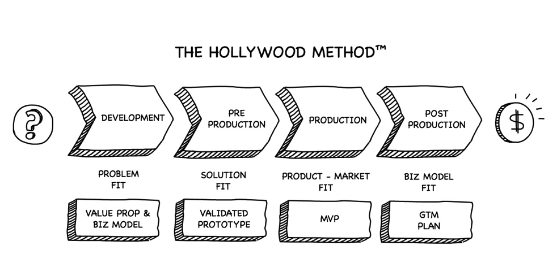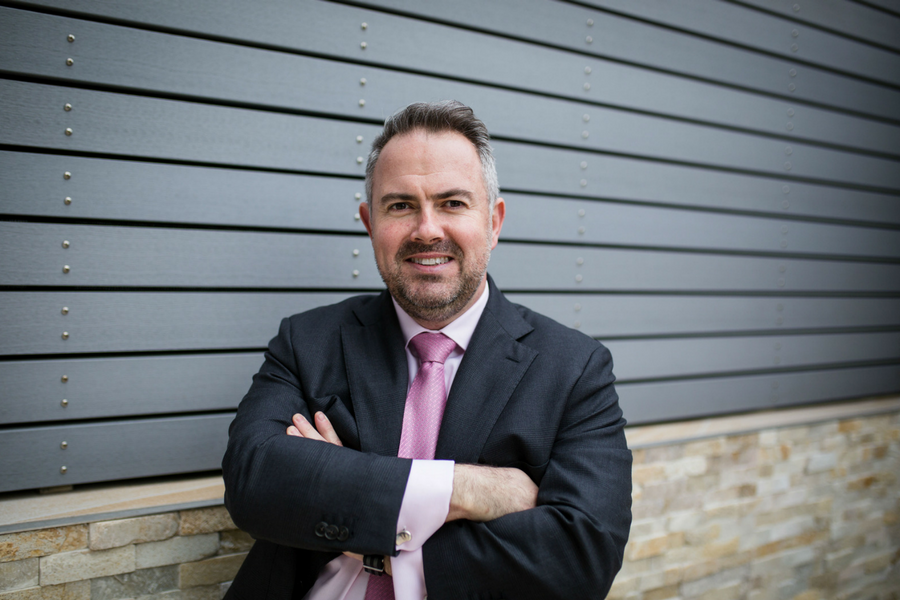By Jamie Pride
Have you seen Jurassic Park? I’m sure you have. It was a cinematic unicorn (talking in more than $1 billion of receipts at the box office). It’s a pretty compelling story. Based on a book by Michael Crichton (which was a best seller), directed by Steven Spielberg, and starting Sam Neill and Laura Dern. It was made on a budget of $63 million, Industrial Light & Magic did the special effects, it won three Academy Awards and went on to birth numerous sequels.
So what has all this got to do with startups, you might ask? If you think about it, there is a lot to for startups to learn from the process that Hollywood uses to make movies. They have been perfecting their process for decades. 92 percent of startups fail, and although Hollywood has its fair share of flops – its success rate is far greater than that of Silicon Valley. So what’s the big insight?
I take more than 100 startup pitches a year – and meet hundreds more at startup events and functions. Over many years I saw the same mistake being made by new and inexperienced founders – a rush to get their app or product built. I saw time and time again founders pouring their savings into engaging app development companies only to build something that ultimately flopped. Not only was this a huge waste of money, but I saw the resultant depression and anxiety that founders had to deal with after they had blown their available money, and not been successful.
I knew what these founders needed to do, but I was looking for an easy way to communicate it to them – Hollywood became the answer.
Have you ever stopped to watch the credits of a movie? Literally hundreds of people work on the production, from cinematographers to accountants. It’s a huge endeavour. What Hollywood worked out ages ago is that the actual “production” component of a movie (pulling out cameras and filming imaginary dinosaurs) is hugely expensive. So they focus on making “Production” as short and cost effective as possible. They do this through, often, years of planning.
The process of making a movie involves four steps;
– Development – where the story is turned into a screenplay and refined
– Pre-production – where actors are cast, locations scouted and every shot in the move is sketched out on a story board
– Production – lights, camera, action
– Post-production – putting the final polish on the movie including editing, sound and special effects
This same process can be applied to startups – with the effect of minimising the risk of producing a product that doesn’t meet the market need.
It can be thought about by the following diagram: Just as Hollywood is synonymous with movies, tech startups are synonymous with their technology — so much so that it can blind founders to everything else.
Just as Hollywood is synonymous with movies, tech startups are synonymous with their technology — so much so that it can blind founders to everything else.
The product is tangible, visible; it’s something everyone gravitates towards and works on. The technology is a siren song for founders, who are magnetically attracted to their products. Of course, products are essential, but that siren song means that founders overlook other important areas such as market and customer research, product planning, storyboarding, prototyping, and testing. It’s often easier to go and work on your product than it is to work on anything else.
In short, most startups to not spend enough time in the development and pre-production phases. The first two phases of product development are not understood in a mature and developed way by many founders.
To understand this well means learning how to do market research — to ask questions to identify market needs, to ask customers why they do certain things. Understanding consumer behaviour is still an emerging aspect of the industry right now.
For this reason, when most startups first learn about software development life cycles, they focus on how to make a product efficiently. And they learn this before they have research results confirming that their business model is sound. It is tempting to focus on product, but there is a widespread lack of knowledge around customer development – which is why I developed a structured approach for the process.
What I’m proposing is a comprehensive map, and a descriptive, prescriptive approach to structuring your thinking and actions, and to navigating the life cycle of your startup.
I hope your startup is the next blockbuster – but remember to spend a disproportionate amount of time refining your value proposition, business model and prototypes before moving to full scale product development.
Jamie Pride is a serial entrepreneur and venture capitalist on a mission to help build better founders and a better venture capital ecosystem to support them. He is the Managing Partner of Phi Digital Ventures, and the cofounder of The Founder Circle, a not for profit focused on improving founder mental health and wellness. His new book, Unicorn Tears: Why Startups Fail & How To Avoid it (Wiley) is now available.




















Trending
Daily startup news and insights, delivered to your inbox.